KEY DATES
Event Date: Friday, 24 October 2025 at 12pm
Location: Pearl Ballroom, Crown Sydney
Event Enquiries
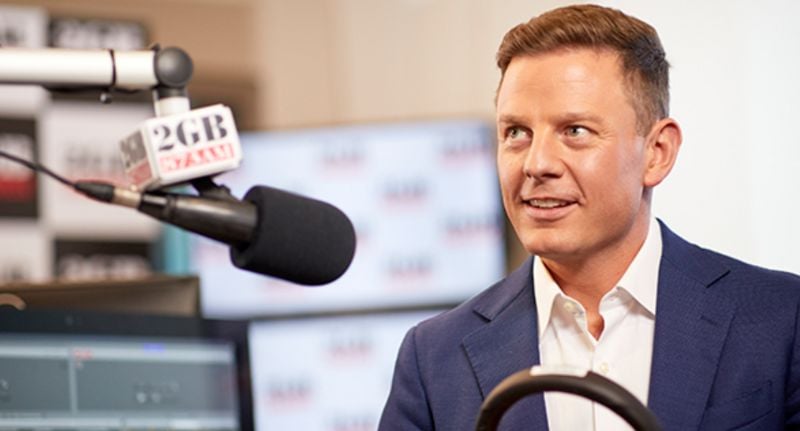
Sydney Radio Ratings
GfK Survey 6 2025
Survey Period: Sun 20 July to Sat 27 Sept 2025.
Biggest Movers:
UP: 2GB +2.8
DOWN: KIIS 1065 -1.3
In the overall Sydney radio ratings, 2GB delivered a strong performance, jumping from 11.4 to 14.2 to reclaim its position at the top of the market.
Meanwhile, Smooth FM eased slightly, slipping from 11.8 to 10.7, but still holding firm among the city’s most-listened-to stations
Sydney’s radio landscape saw a shake-up this survey, with 2GB Breakfast surging from 14.2 to 16.8 to tighten its grip on the top spot.
KIIS 1065 eased back from 15.3 to 13.6, while Nova 969 gained ground, climbing from 7.5 to 8.6.
Triple M slipped slightly from 5.3 to 4.9, and 2Day FM continued its slow run, edging down from 3.9 to 3.6.
On the AM dial, ABC Sydney inched up from 7.6 to 7.8, while in Melbourne, Gold 104.3 remained steady, dipping marginally from 8.2 to 8.1.
2GB 14.2% (11.4%)
Cume: 696,000 (+50,000)
Breakfast: 16.8% (14.2%)
smoothfm 95.3 10.7% (11.8%)
Cume: 1,379,000 (-4,000)
Breakfast: 7.8% (8.1%)
KIIS 1065 9.8% (11.1%)
Cume: 1,119,000 (-46,000)
Breakfast: 13.6% (15.3%)
Gold 101.7 7.9% (7.9%)
Cume: 680,000 (-31,000)
Breakfast: 8.1% (8.2%)
Nova 96.9 7.1% (7.4%)
Cume: 1,134,000 (+94,000)
Breakfast: 8.6% (7.5%)
ABC Sydney 6.6% (5.6%)
Cume: 557,000 (+28,000)
Breakfast: 7.8% (7.6%)
104.9 Triple M 4.7% (5.5%)
Cume: 695,000 (-13,000)
Breakfast: 4.9% (5.3%)
Triple J 4.4% (4.3%)
Cume: 560,000 (+57,000)
Breakfast: 3.9% (3.4%)
104.1 2Day FM 3.8% (4.1%)
Cume: 646,000 (-13,000)
Breakfast: 3.6% (3.9%)
2UE 954 3% (2.4%)
Cume: 267,000 (+41,000)
Breakfast: 2.1% (2%)
ABC Classic 2.8% (2.7%)
Cume: 232,000 (+13,000)
Breakfast: 1.6% (2.3%)
ABC NewsRadio 1.7% (1.8%)
Cume: 312,000 (-23,000)
Breakfast: 2.6% (2.9%)
Sky Sports Radio 1.2% (1.4%)
Cume: 165,000 (-13,000)
Breakfast: 2.3% (2.2%)
ABC Radio National 1.1% (1.1%)
Cume: 133,000 (+2,000)
Breakfast: 1.4% (1.3%)
SEN 1170 1% (1.1%)
Cume: 102,000 (-2,000)
Breakfast: 0.8% (1.2%)
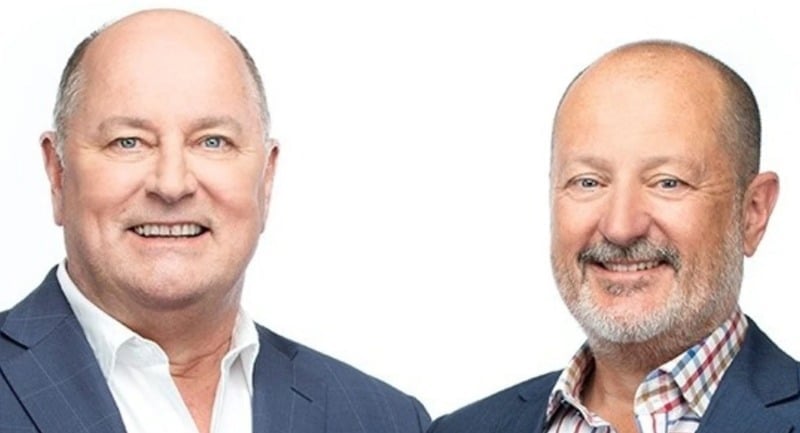
Melbourne Radio Ratings
GfK Survey 6 2025
Survey Period: Sun 20 July to Sat 27 Sept 2025.
Biggest Movers:
UP: 3AW +1.1
DOWN: Nova 100 -1
In Melbourne, 3AW extended its lead, rising from 13.5 to 14.6 to remain the city’s top station. Fox FM also gained ground, lifting from 8.2 to 8.6, while Gold 104.3 held steady on 11.2. KIIS 101.1 dipped from 5.6 to 4.9, and Triple M softened slightly from 8.2 to 7.9. Nova 100 also declined, slipping from 8.1 to 7.1, while ABC Melbourne posted a solid increase, climbing from 5.8 to 6.5.
That winning trend continued for 3AW in the Breakfast slot, extending its lead in the market, rising from 19.0 to 20.3, while Fox FM lifted from 9.0 to 9.5 and Gold 104.3 also improved from 10.1 to 10.9.
KIIS 101.1 was steady with a slight dip from 6.1 to 6.0, while Triple M fell from 7.7 to 7.0 and Nova 100 dropped from 10.0 to 8.4.
ABC Melbourne rounded out the results with a rise from 5.5 to 6.4.
3AW 14.6% (13.5%)
Cume: 722,000 (+47,000)
Breakfast: 20.3% (19%)
Gold 104.3 11.2% (11.2%)
Cume: 1,224,000 (+71,000)
Breakfast: 10.9% (10.1%)
smoothfm 91.5 9.8% (9.8%)
Cume: 1,094,000 (+29,000)
Breakfast: 7.8% (8%)
101.9 Fox FM 8.6% (8.2%)
Cume: 1,205,000 (+53,000)
Breakfast: 9.5% (9%)
105.1 Triple M 7.9% (8.2%)
Cume: 864,000 (+64,000)
Breakfast: 7% (7.7%)
Nova 100 7.1% (8.1%)
Cume: 1,204,000 (-76,000)
Breakfast: 8.4% (10%)
ABC Mel 6.5% (5.8%)
Cume: 512,000 (+17,000)
Breakfast: 6.4% (5.5%)
KIIS 101.1 FM 4.9% (5.6%)
Cume: 967,000 (+21,000)
Breakfast: 6% (6.1%)
Triple J 3.4% (3.1%)
Cume: 464,000 (-31,000)
Breakfast: 3.2% (3.1%)
SEN 1116 3.4% (4.3%)
Cume: 385,000 (-25,000)
Breakfast: 3.5% (4.5%)
ABC Radio National 2.4% (2.2%)
Cume: 186,000 (+26,000)
Breakfast: 3.5% (2.4%)
3MP 1377 2.1% (1.7%)
Cume: 171,000 (+2,000)
Breakfast: 1.7% (1.3%)
Magic 1278 1.5% (1.7%)
Cume: 189,000 (+10,000)
Breakfast: 0.9% (1.3%)
ABC NewsRadio 1.3% (1.7%)
Cume: 259,000 (-6,000)
Breakfast: 1.5% (2.5%)
ABC Classic 1.3% (1.7%)
Cume: 167,000 (-26,000)
Breakfast: 1.2% (1.7%)
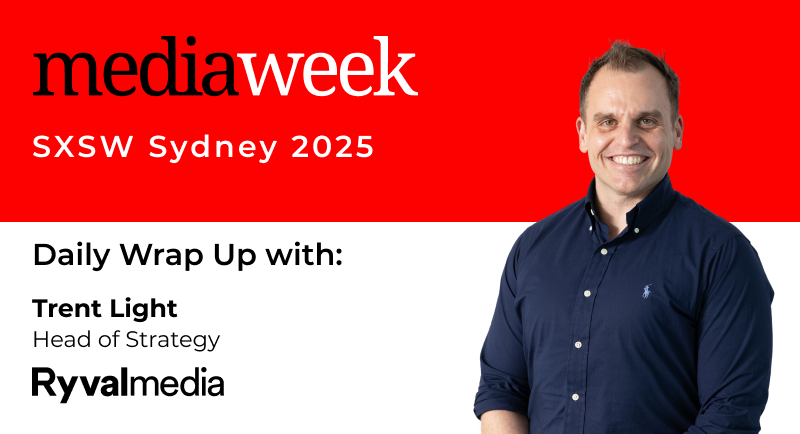
You don’t need ChatGPT to know what the theme of the day was going to be for the kickoff of SXSW Sydney. It was always going to be AI. And yes, it did dominate. In fact, it was hard to find a session that wasn’t somehow tied to AI. Even the ones that didn’t lead with it still managed to weave it in somewhere.
That said, it was refreshing to hear from people with different perspectives, and especially nice to hear that AI isn’t here to take all of our jobs.
A huge part of the sessions I attended focused on how AI can help remove the friction of day-to-day agency life and unlock more time to work on the problems that are actually keeping our clients up at night.
Here are a few key takeaways from the sessions I attended.
The must-see: Mo Gawdat’s The Human Advantage
I’ll start with the standout session of the day, keynote speaker Mo Gawdat’s The Human Advantage discussion.
First of all, the line to get in was at least 500 people deep a full 45 minutes before it even started. Thankfully, the organisers arranged a live stream in the Parkside Room. I could’ve listened to him talk all day.
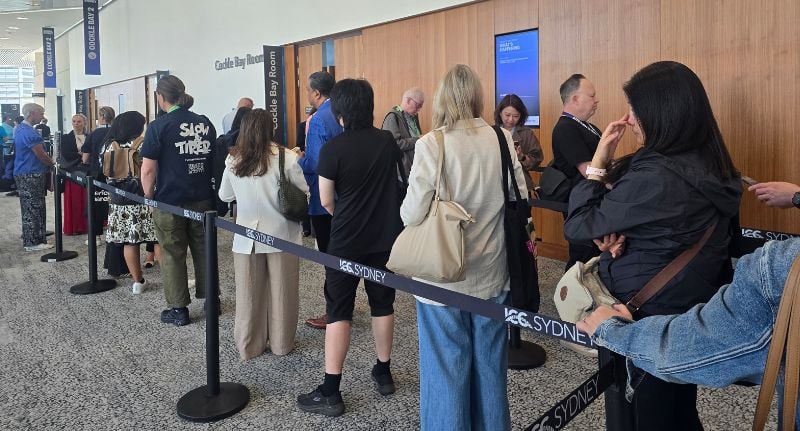
The queue to get into Mo Gawdat’s keynote.
Logistics aside, it felt like mandatory viewing. Gawdat elevated the conversation beyond business applications, taking a more philosophical approach: AI isn’t inherently good or bad. What will determine its impact, on our industry and the world, is how we choose to use it.
As one of the key players in the development of AI platforms, Gawdat remains fundamentally optimistic.
He believes there are more good people in the world than bad, and that a network effect of good is possible. Our collective intelligence and morality, he argued, will ultimately decide whether AI has a positive or negative impact on our lives.
Another standout session brought together three powerhouses, Accenture Song, CBA and Telstra, to talk about how they’re using AI to improve efficiency, information sharing and customer experience.
CBA’s Kim Hughes spoke about how a cautious approach has earned the bank recognition as a global leader in responsible AI. Striking the balance between scaling AI solutions and managing risk, she said, remains a key focus for the business.
Jeremy Nicholas from Telstra discussed the growing demand on their network as a result of AI and how the company can now anticipate and manage capacity in real time.
He also envisaged a future where a single, personalised user interface greets customers with: “How can we help you today?” His vision is to make every online interaction a seamless and individualised experience for Telstra users.
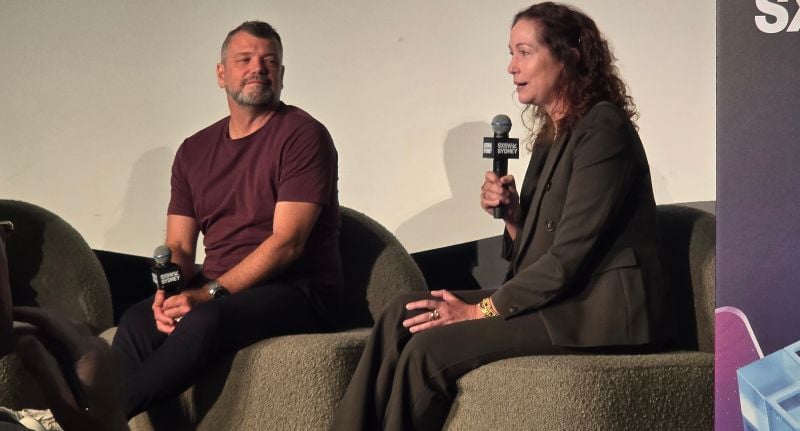
Jeremy Nicholas from Telstra and CBA’s Kim Hughes
In the afternoon, I did my best to find something non-AI-related and headed to Navigating the New Age of eCommerce, featuring speakers from Google, Afterpay and eBay. But, like the drunk guy who keeps getting kicked out of a bar only to sneak back in, AI somehow found its way into this conversation too.
Still, it was interesting to hear Afterpay and eBay talk about the importance of community, bringing people together to buy and sell goods on their own terms.
Emily Brasher from Afterpay spoke about the platform’s role as an alternative to credit cards, which apparently give Gen Ys “the ick”, and how Afterpay helps people pay down debt, rather than rewarding spending.
Sarah Sternau from eBay discussed the importance of understanding your audience and being physically present in their communities, from motorsport events to local markets and collector fairs.
Renee Gamble from Google rounded things out by reinforcing the role of search as the gateway to purchase.
She urged brands to invest in content that shows up in the right moments: “Consumers are looking for solutions rather than options.”
To win in the new digital economy, she said, brands need enough content, and the right formats, to meet consumers wherever they are.
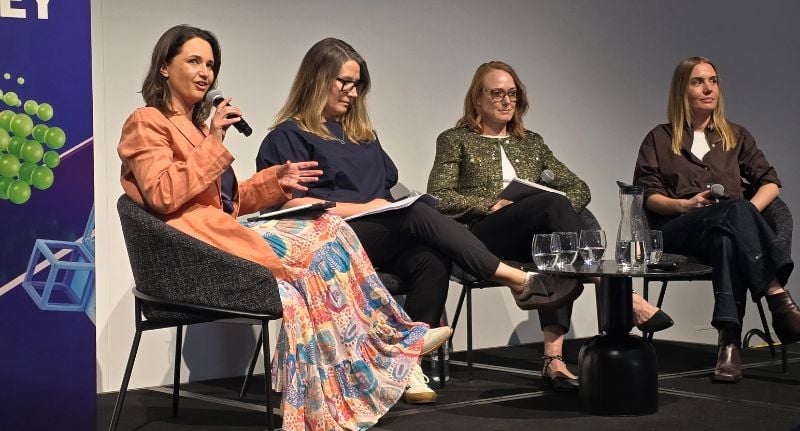
• Despite all the drama in the world, there are still more good people than bad. “The bad ones just get the headlines.” – Mo Gawdat
• You can’t escape AI – learn to work with it.
• Get to the sessions you really want to attend at least 15 minutes early. Chances are, everyone else wants to go too.
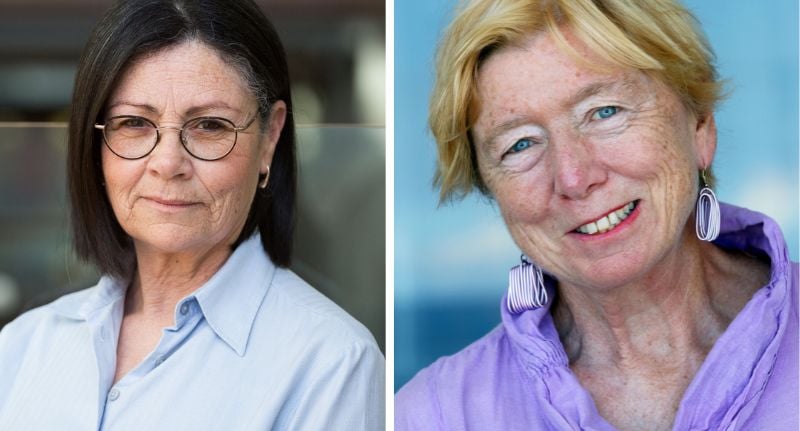
Podcasting was once hailed as the most democratic of media. It was supposed to be open, unfiltered, and free from gatekeepers. But as the medium has evolved, so too have its risks (and its paywalls).
At SXSW Sydney’s Is Podcast the Democratic Medium It Set Out to Be? And Is It Good for Democracy? session, leading voices Siobhan McHugh and Professor Monica Attard unpacked how podcasting’s original ideals have collided with the realities of influence, misinformation, and accountability.
For McHugh, an award-winning podcast producer, oral historian, and author of The Power of Podcasting: Telling Stories Through Sound, the origins of podcasting are rooted in openness and idealism.
“Podcasting started out with the intention of being a free ecosystem,” McHugh told the SXSW audience. She credits much of that vision to technologist Dave Winer, who helped pioneer the RSS feed around 2000.
“He said, ‘I deliberately wanted to make it an open space. I’m far more interested in creating a medium than in making any money.’”
That decision, she explained, shaped the DNA of podcasting as an unpaywalled, audience-first medium.
“They couldn’t put a paywall around it. You could get your work out there on the internet and straight to people’s devices in your feed,” McHugh said. “It encouraged a lot of young, just niche DIY people to get into the game.”
But, she added, that open ecosystem has since been “undermined by corporates like Spotify,” whose walled platforms risk turning a once-public medium into a commercialised, closed space.
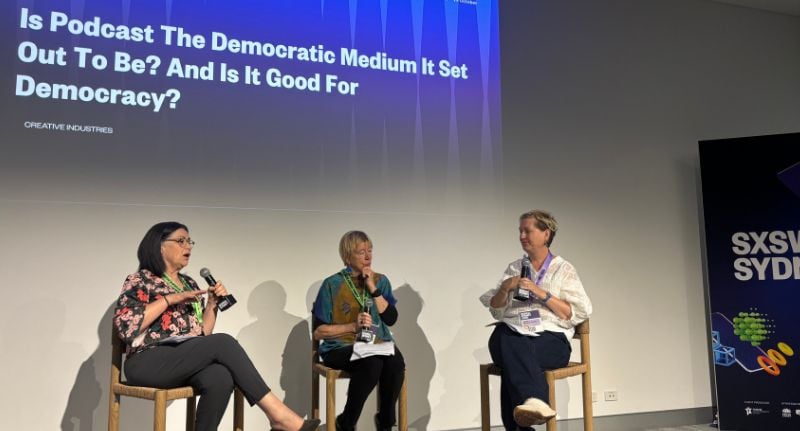
L-R: Professor Monica Attard, Siobhan McHugh, and moderator Sarah Gilbert.
McHugh argued that despite the corporatisation of audio, podcasting remains a space for rule-breakers, particularly in regions where expression is restricted.
She pointed to EIB (Arabic for “shame”) – a Jordan-based podcast tackling taboo issues around gender and sexuality.
“It deals with all kinds of taboo topics, mostly around gender and issues of women’s sexuality,” she said. “It’s based out of Jordan, but its audiences are in Saudi Arabia and Egypt, and it’s been credited with really starting conversations in those societies.”
In Myanmar, McHugh described “an incredibly brave young woman” who began producing feminist content from her bedroom. “She’s challenging all kinds of stereotypes,” McHugh said. “No doubt she would be in real danger.”
For McHugh, these voices prove podcasting’s radical potential – that anyone, anywhere, can use sound as a tool for social change.
“Podcasting is not just the domain of journalism by any means,” she said. “Anybody can do podcasts for entertainment. It might not be lofty stuff about the state of the world or politics or anything like that. That’s the whole point of it.”
Professor Attard OAM, Co-Director of the UTS Centre for Media Transition, agreed that podcasting has fundamentally reshaped the media landscape – but cautioned that the same qualities that make it democratic also make it dangerous.
“I would absolutely 100% agree that it is a democratising genre,” Attard said.
She then went on to quote a study from Podnews, which showed that “in Australia, 69% of 25 to 34-year-olds listen to podcasts, and fewer than 49% trust legacy media”.
She went on to say: “There’s a problem there. It certainly is an indication of how powerful the genre has become.”
She noted that podcasting’s accessibility “bypasses the gatekeepers,” providing a platform for voices that would never have been heard in traditional media. But that freedom comes without the same editorial standards.
“They have no obligation to objectivity, no obligation to verify, no obligation to fairness, and no obligation to prove their accuracy,” Attard said. “That is where I begin to wonder what the possibilities are for that kind of information to become polluting.”
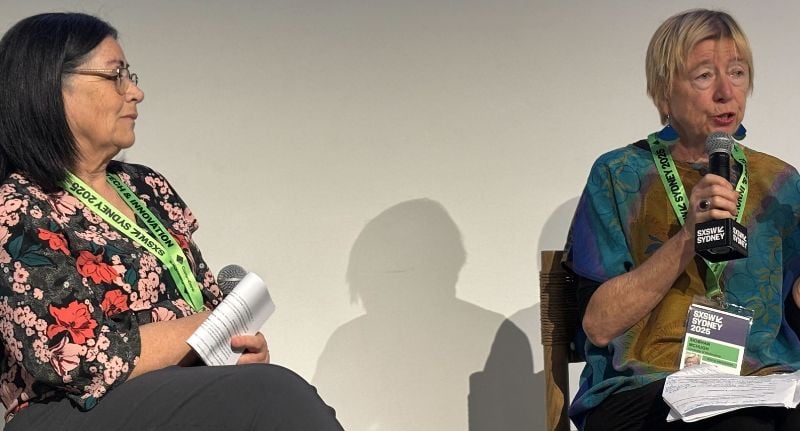
L-R: Professor Monica Attard and Siobhan McHugh.
For Attard, the issue isn’t with the high-end, narrative podcasts that undergo rigorous production and research, but rather the vast ecosystem of unfiltered opinion shows that shape public discourse without oversight.
“There’s no accountability,” she said. “I’m not saying they shouldn’t be there – they actually deserve a voice – but they occupy space and produce output without any guardrails.”
She singled out Joe Rogan as a case in point. “He doesn’t in any way challenge guests, and then he says, ‘Well, that’s not my job, I’m not a journalist, I’m a comedian’… but I’ve never heard him say anything funny.”
The risk, Attard argued, is not just misinformation – but the way that content from fringe podcasts begins to influence legacy media itself.
“Once something begins to be talked about in the public sphere a lot, the temptation for legacy leaders to buy that audience, or bring that audience in, becomes really quite tempting,” she said.
“We saw that coming out of the pandemic, where stories running in legacy media appeared hours earlier on social media. Legacy outlets were sourcing their stories from social media because it was such a flourishing space of ideas and happenings.”
That same dynamic, she warned, is now evident in podcasting. “It can drive agendas. It can drive what’s being talked about in the mainstream,” Attard said. “And that’s both the power and the peril of it.”
Both McHugh and Attard agree that podcasting has changed the media landscape forever – offering independence and intimacy unmatched by legacy platforms.
But as the medium continues to grow, Attard’s warning is clear: without editorial accountability, that freedom risks eroding the very trust that made podcasting powerful in the first place.
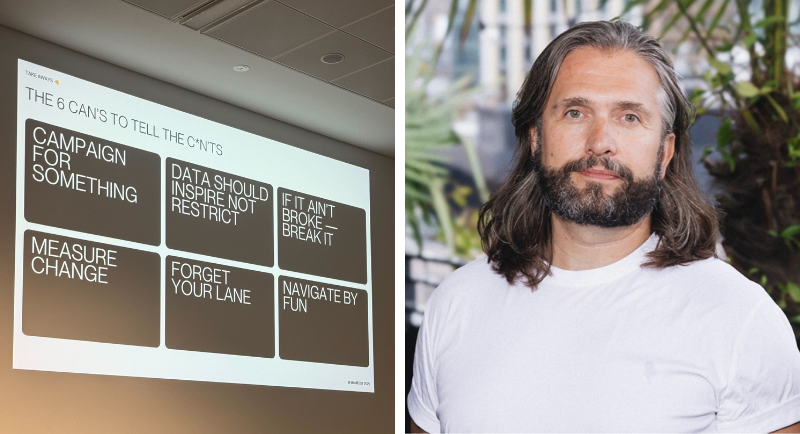
At SXSW Sydney, Manifest Group founder and CEO Alex Myers didn’t deliver a talk so much as a manifesto.
The session, Boring Cant’s: The ‘Rules of Comms We All Need to Break, was part industry-roast and part inspiring creativity-revival CTA.
Standing before a crowd of marketers, creatives and brand leaders, at one of the first sessions at SXSW Sydney, Myers set out to dismantle what he called the industry’s growing “can’t culture.”
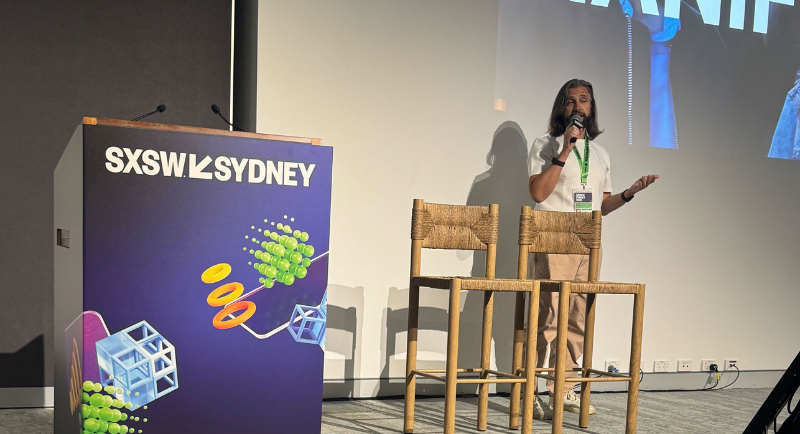
Alex Myers
“You literally cannot deliver progress or be a progressive brand without breaking rules,” he said.
For Myers, the line between safe and stale has disappeared, and he’s not afraid to point a finger at what’s gone wrong.
“There’s a real danger at the moment that the industry is slowly sanitising itself,” he warned. “In the creative industries, everything you create should destroy something. Otherwise it’s not new.”
Myers opened with a provocation. In every organisation, there are “the ones that can and the ones that say you can’t.”
He argued that “we put the burden of proof on opportunity… prove to me why that’s going to work. We don’t actually ever need to prove why that’s risky.”
His advice is just to flip the script.
One of the standout examples came from Manifest’s work with Eager, a fruit juice brand that Myers described as “fresh from reality.”
“There’s an industry of fruit juice around the world that is pretty much identical,” he said. “Everyone has the same f***ing oranges, but they all try to tell people to care about what’s in the carton as if you’re going to care which oranges are in there.”
Instead, Manifest reimagined “fresh” as cultural relevance, not orchard imagery.
During UK university Fresher’s Week, the first week at university, their cranberry juice campaign declared: “When life gives you a UTI, drink cranberries.” And the tagline read, “Because burning pee isn’t a vibe.”
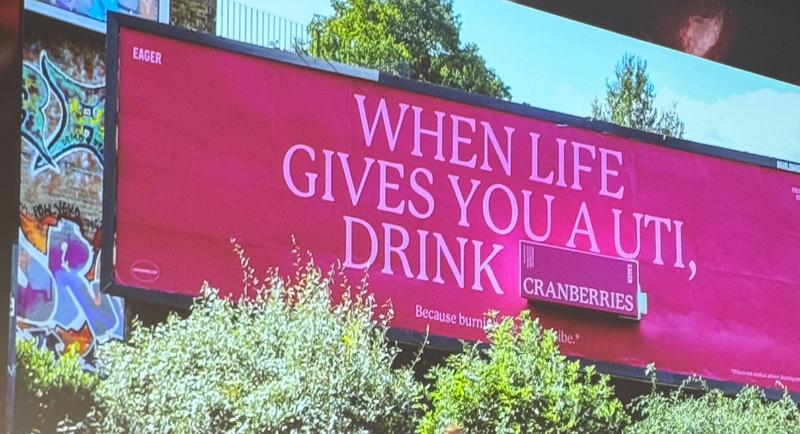
The Eager campaign for UK Fresher’s Week
The OOH campaign featured a huge cranberry juice carton, stuck to the billboard which students quickly stole.
“So we put ‘Missing’ posters all over London that turned this into a social interaction,” Myers said. “We didn’t have a budget for social, but it was the right thing to do.”
Perhaps the most powerful example cof Myers’ approach came from Tommee Tippee’s “The Boob Life” campaign.
“The first product they ever launched for mums was a breast pump,” Myers explained. “Everything supported this sanitised idea that breastfeeding and pumping was easy, polite… there was nothing that was real about it.”
Instead, Manifest showed real mothers and real experiences.
“We created a campaign with real mums and their children showing real, authentic breastfeeding experiences in a world that said you can’t do this,” he said.
When Meta and LinkedIn removed the ads, mothers began reposting them faster than the platforms could delete them.
“When it was getting brought down, they were sharing it faster,” Myers said. “We turned it into an active revolt against this stigma.”
Within a week, the platforms changed their algorithms to allow breastfeeding imagery.
“All of the mums that we surveyed before the campaign and surveyed afterwards had improved their confidence in breastfeeding publicly,” Myers said, noting marketing campaigns often use the word ‘lactating’ but real mums never do. “That’s a real shift we can have.”
Myers says Manifest, which has offices all over the world, tries to run their business in the same way that they think of marketing campaigns and creative – by challenging rules that have become lore in so many workplaces.
“We were the first creative agency in the world to give everyone unlimited paid vacation,” he said. “Everyone said, ‘You can’t do that. Everyone’s just going to be on holiday all the time.’ Turns out they won’t.”
He also introduced what he calls the “F*** Off Fund.”
“If you leave Manifest in the first three months, we’ll pay $2,000 to leave the company. If you stay, you have to choose the person in the team that made you feel most welcome, and they get the money.”
In closing, Myers distilled his philosophy into six rules every agency, creative and marketer should live by:
Campaign for something and not about something.
Data should inspire you and not restrict you.
Measure cultural impact, not just reach.
Forget your lane.
It’s not broke, then break it!
Navigate by fun.
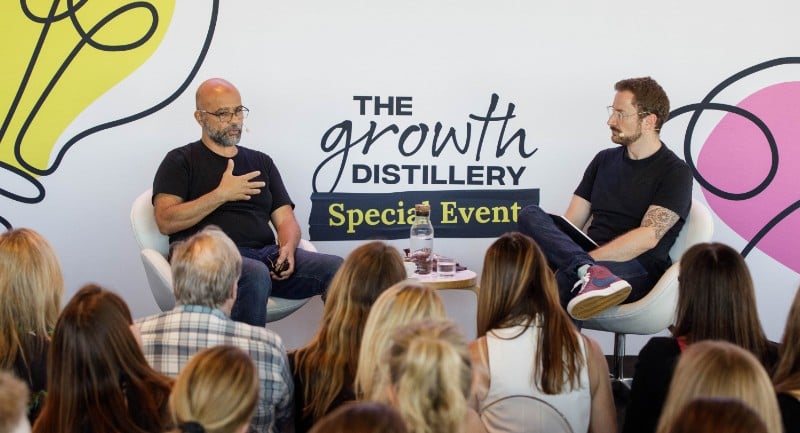
Away from the hustle and bustle of the SXSW conference yesterday, the team from The Growth Distillery held an adjacent event with SXSW keynote speaker Mo Gawdat.
Gawdat is a keynote speaker at SXSW and yesterday morning spoke to a full conference hall. He is a former Chief Business Officer at Google X and host of the mental health podcast Slo Mo. The SXSW talk was so popular that an overflow room with a video feed of the talk and seating for a couple of hundred people also neared capacity.
Later in the afternoon, the Growth Distillery hosted him for an intimate (by SXSW standards) chat with Director of The Growth Distillery, Dan Krigstein. The two spoke on stage, not about AI which was the focus of his talk earlier in the day, but instead on Gawdat’s mission to help people embrace mental health and find a centred approach to life.
Mediaweek spoke with Kringstein after the session to better understand the value of hosting a session like this as an adjunct to SXSW and what Kringstein and his team got out of it personally.
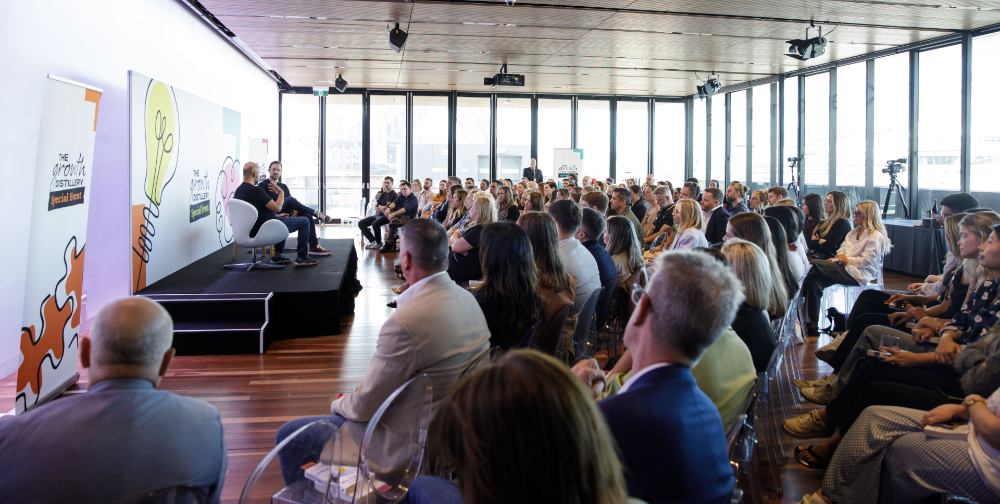
Mediaweek: What is the growth distillery wanting to get out of a session like the talk with Mo Gawdat?
Dan Kringstein: The purpose of yesterday’s session is really, I guess, a show of gratitude for our clients, our partners, the community of practise that has made the distillery the success that it is. We always try to bring in a talent that feeds growth in a way that might be sort of adjacent or unusual area that executives and our partner organisations might be overlooking, which from yesterday’s topics of conversation was really this idea of self-care and optimising for our own wellbeing.
What I’m hoping that our guests take from yesterday is just a toolkit to help better navigate the world around them, to become better parents, better leaders, to cultivate a life that is more nourishing within a backdrop that is looking a little scarier with each and every day.
What led you to Mo specifically? Because as a top-level idea, he’s former Google X, he’s very sort of interested in AI, which is heavily what yesterday’s keynote at SXSW was about. But he also has his book that he’s written talking about dealing with stress. What was the process of recognising him and then realising where you could go with the session?
So there’s a bit of a backstory here. So I’ve been a fan of Mo’s for a couple of years now, but the trigger was really last year’s special event when we had Stephen Bartlett. One of the guests questions that we had at the end was, of all of the people that Stephen had interviewed, what was the one episode that he recommends more often than not and the one that had the most profound impact on him as a conversation? And the guy just looks at the audience and goes: “oh, easy. Number one and number two are the same guy.”
And he directs us to episode, I think it was 101 of one of the follow-up episodes that Mo had been on. So it was Stephen directed us to Mo, and ironically, the episode that he directed us to was one that Mo had done with Stephen on happiness.
That led us, me and a couple of the team, down sort of this rabbit warren of of Mo Gawdat’s books. And then when we were talking with SXSW about bringing him out, it was actually pretty good because I knew that we wanted to talk about the stuff that he’s often not speaking about, but the stuff that really he’s passionate about. And SXSW wanted to go down the road of what is the guy’s perspective on AI.
It worked out really well because we wanted to make sure that guests that were also going to SXSW had an opportunity to see both sides of the guy and both territories where he is, you know, truly a domain authority.
AI is obviously the topic du jour of the moment. In thinking about your average media professional, people’s interest in AI are twofold. One, it’s looking for opportunities for them to develop professionally within that space and work out where they need to be taking their careers. But then the other is just that people are freaked out. People are trying to work out where they fit in the greater scheme of it. While you were trying to settle on your theme of who you want to talk to, was there part of you thinking that, oh, we actually really do need to address AI, or was it more just you wanted a reprieve?
I think people are going to get their fill of what I would call AI insight over the next week at SXSW
In fact, I think we’re going to get to a point where people are really trying to process and consolidate all of the very many perspectives. And that’s really what they are. They’re just informed perspectives, even from those that are truly at the forefront of this.
I think it’s going to be hard to separate truth from perspective or, you know, truth from future-casting in a world that is changing so rapidly. And that wasn’t really why we wanted to bring Mo to town. What we wanted to bring Mo to town for was, fundamentally in a world that is becoming faster paced, becoming louder where it’s becoming materially more difficult to predict the future.
And anyone that hazards a guess, or at least claims, that they can predict what is going to play out in what timeframe is probably selling you snake oil. You know, in my opinion, certainly, but, in Mo’s opinion as well. One of the things that we were talking about was what’s the skill sets that you need to thrive no matter what comes. Emotional resilience and mental agility tend to be the two that I land on.
It wasn’t so much a reprieve per se, because what we spoke about was certainly intended to be constructive and in terms of building out a toolkit to navigate. But, in a SXSW conference that is brimming with AI, we wanted to provide something that I think was more practical and useful, no matter what the background was. And me providing yet another perspective on the, as you said, topic du jour, just adds potentially to the noise and adds to the stress rather than helps those that are part of our community.
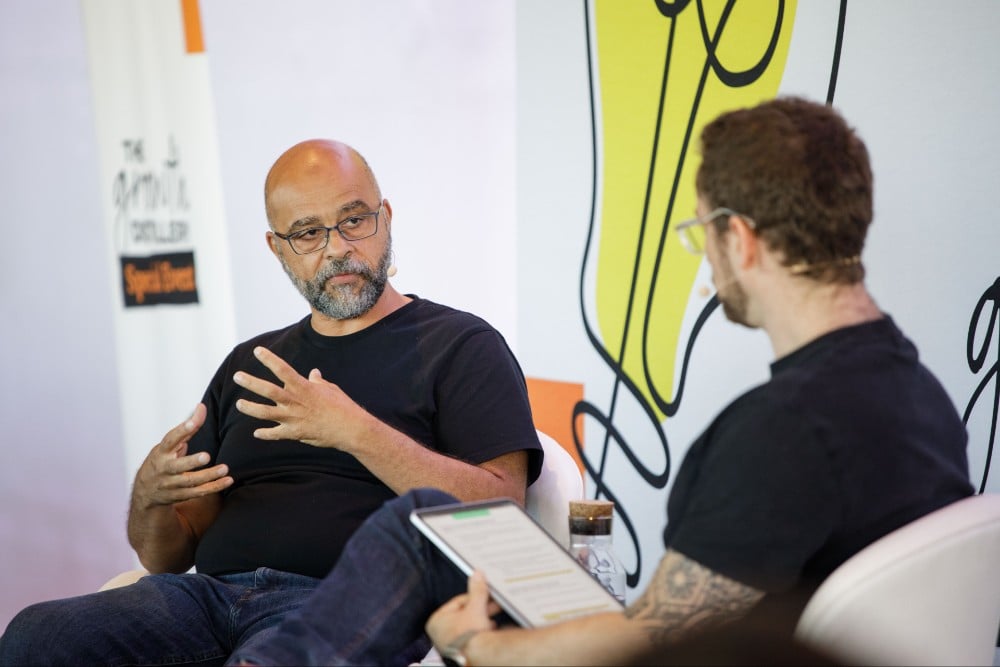
A comment Mo made during the talk caught the attention of some attendees when he said that he takes six weeks out every year to practice solitude. For you personally, how much are you in a position to take six weeks off for a month of solitude and wellness?
Look, I, personally speaking, I’m very, very lucky that I am, I’m privileged to lead a very competent team led by an exceptionally brilliant set of leaders.
I would have absolutely no issue taking six weeks off. The issue that I have is that I have a young family. It’s not really about me anymore.
It’s about the young children that I’ve brought into the world and making sure that they are being set up to thrive. But, I think I’m probably not the every-person when it comes to that. I’ve got a very, very unique position of privilege with a team that I could be out of the building for six weeks and my team would thrive. I’m very confident in that regard.
It’s a defence mechanism when you come out of these things and you’re confronted with some stimulus that might suggest that some of our life choices are keeping us on this hedonic treadmill, right? And it’s a defence mechanism to come out and go: “it’s easy for him to say because he can go and take that time off.”
But, you could argue that the table stakes are also higher for a guy that is building his own businesses that has a racked and stacked agenda as he does. So I really hope that people take the essence of what he’s saying around prioritising our wellbeing, being able to build a suspension system to help us navigate the world around us, putting on our own oxygen masks right before the kids – you’re on a plane and they go: “Well, don’t put on your kids first. You have to put on your own oxygen mask.”
As a person and media professional, what are you hoping to get out of South by Southwest?
I’m hoping to fill my cup on all fronts. The lineup this year is truly extraordinary if you can sort of navigate the FOMO of it and the inevitable missing out on brilliant thinkers and speakers.
So absolutely fill my cup on perspectives, to take a breather from the day in/day out rigours of running the Distillery and running a team to be able to spend that time with my team. My entire team is down at SXSW, learning together, hoping that we can share some brilliant ideas. And, as Fenella who runs programming yesterday said: just meet some people.
I feel as though one of the things I’m noticing is this sort of radical individualism and independence is not being healthy… it’s not good for the soul. I’m hoping to spark a couple of conversations in a line waiting for a Tim Tam or a coffee and, you know, just meet another brilliant person with a level of curiosity.
I just hope that, you know, the media practitioners of Sydney and more broadly across the country can stop being busy for a week to put on their own oxygen mask and learn a little bit about the world that we’re going to inherit over the next two decades.
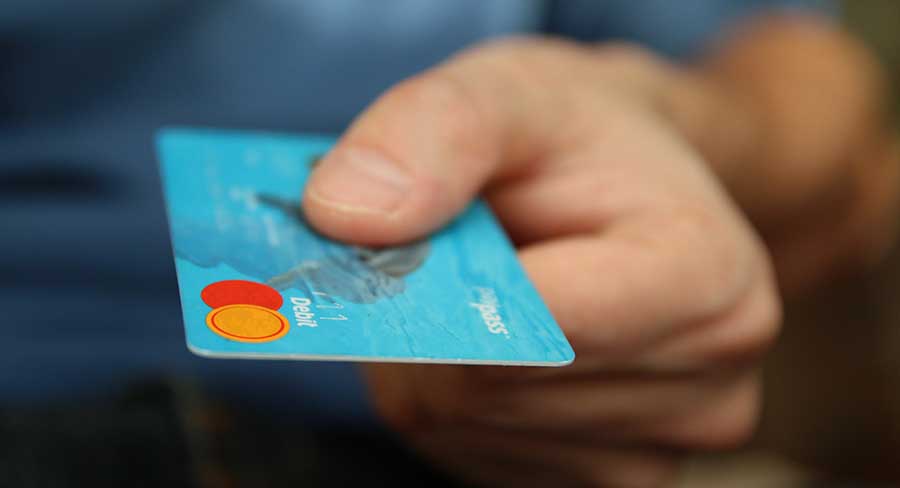
What customers say versus what they actually do is causing a “corrupt cycle” that’s costing the industry billions of dollars, according to a panel of marketing and research experts.
At SXSW Sydney on Monday morning, the panel moderated by veteran marketer and ADMA Vice Chair Steve Brennen explored what was described as one of the “most expensive lies in business”, that being the disconnect between consumer intent and behaviour.
“Every day, leaders across businesses, across the world, make hundreds of decisions. And many of those are made on behalf of their customers. [But] when it comes time to act, customers often do something completely different than what they say,” Brennen said.
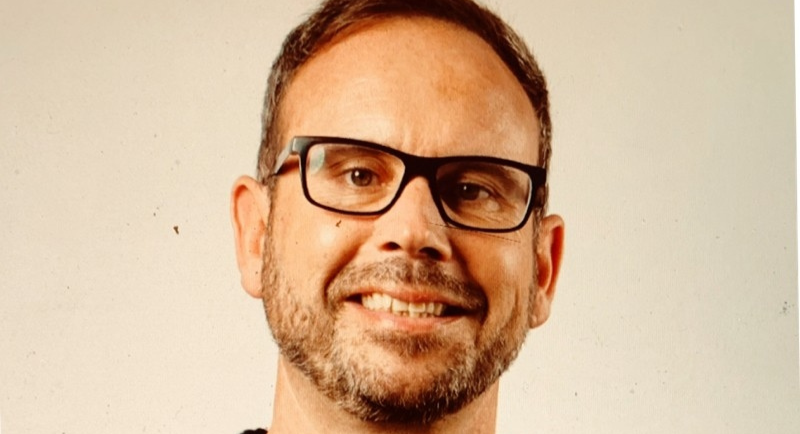
“We call this the ‘say-do gap’, and it’s costing billions, literally billions, of wasted product, failed campaigns, and lost time.”
Brennen, whose marketing career spans Virgin, Uber, PayPal, eBay, and Zip Co, was joined on stage by psychologist and Pragmatic Thinking co-founder Alison Hill, Zip Co’s senior director of market research Sonny Sethi, and Heatseeker CEO and co-founder Kate O’Keeffe.
Between them, they’ve overseen hundreds of millions in market research spending, much of it on insights that didn’t translate into the real world, they admitted. During the panel, they unpacked why the ‘say-do gap’ exists, and how marketers can start to close it.
Hill said the gap does not necessarily stem from people being deceitful – saying they’ll do one thing and backflipping to do another – but rather, it is the nature of human psychology.
“Our intent accounts for about 25-30 per cent of behaviour. So intent, saying that we’re going to do something, accounts for a quarter, a third of behaviour. The rest, that 70-75 per cent, is where human nature steps in and the gap becomes existent.”
So what’s impacting behaviour then, if not intent? What is stopping people from following through, what is causing them to say one thing, and do another? According to Hill, its social desirability, optimism bias, and friction in daily life.
“They’re not lies, they’re stories we tell ourselves,” she said.
While human nature explains part of the gap, outdated industry methods and habits have widened it. Sethi argued the Australian industry’s “whole process of doing research hasn’t changed over the last 40 years”,
“There are still complicated surveys, focus groups. Most companies only tend to do one or two large research projects a year, and by the time the data comes back, the market’s moved on,” he said.
“Cost is a big barrier too, as is the secretive nature of market research. 80 or 90 per cent of companies still keep research close to only a few people. I’ve been trying to decentralise it for the last ten years of my career, and I’ve always had a lot of pushback. I’ve been trying to democratise it, to give everyone, from the CEO to the newest grad, access to the same insights, but it’s still rare.”
Arguing the challenges further, O’Keeffe said the problem runs deeper than methodology, it is instead structural.
“If I don’t show the CFO that 71% of people on the survey said they wanted something, I’m not going to get any budget,” she said. “So it’s this corrupt cycle between us all, we engage in this dance where we know there’s a real gap, but we’re not necessarily addressing it.”
The result, the panel argued, is that marketers end up launching the wrong products for the wrong customers, based on the wrong insights.
While there are things marketers can do to lessen the ‘say-do gap’ such as lean into AI-led analysis, use synthetic data, and pick up the pace of prototyping, the panellists made clear that so much of marketing still hinges on human behaviour, which is inherently unpredictable.
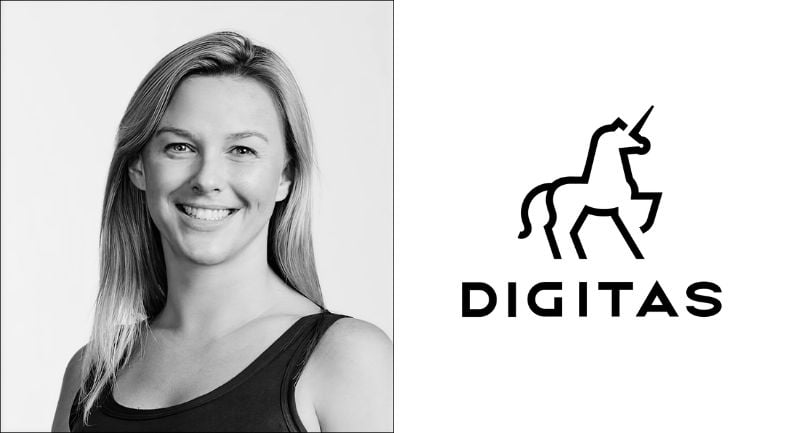
Digitas Australia has appointed Kate Warren-Smith to the newly created role of managing director, joining the national executive leadership team.
Based in Melbourne, Warren-Smith will play a key role in driving connected experiences for clients and fostering the agency’s internal culture. She brings more than 20 years of experience in brand activation, shopper and commerce, known for building high-performing teams and delivering measurable client outcomes.
In her new role, Warren-Smith will lead the development of seamless solutions across customer experience (CX), commerce and CRM, supporting Digitas’ growth in integrated marketing services.
Davy Rennie, CEO of Digitas Australia, said Warren-Smith was the ideal fit for the agency’s “unicorn mandate.”
“Kate’s ability to deliver creative and commercial impact across a wide range of partners and categories was as evident as her track record for building and maintaining amazing cultures,” Rennie said. “Her vision for being a strategic partner, creating fully integrated brand experiences for our clients across Australia, aligns perfectly with our focus on people, process, and product growth.”
Warren-Smith said she was joining the agency at a pivotal time for marketers seeking more unified, connected experiences.
“It’s exciting to join Digitas Australia at a time when we are leading the move from fragmented marketing to unified, connected experiences,” she said. “What sets us apart is our ability to deliver creative, intelligence, marketing operations, commerce and media, all under one roof to drive impact for clients.”
She added: “I’m especially energised by our focus on solutions that blend imagination with commercial strategy, delivering brand moments that are not only seamless but also create meaningful impact throughout the customer journey.”
Digitas, part of Publicis Groupe, is a full-service digital agency specialising in strategy, creative, data, media and technology. The agency’s connected model combines marketing, technology and business strategy to deliver end-to-end consumer experiences.
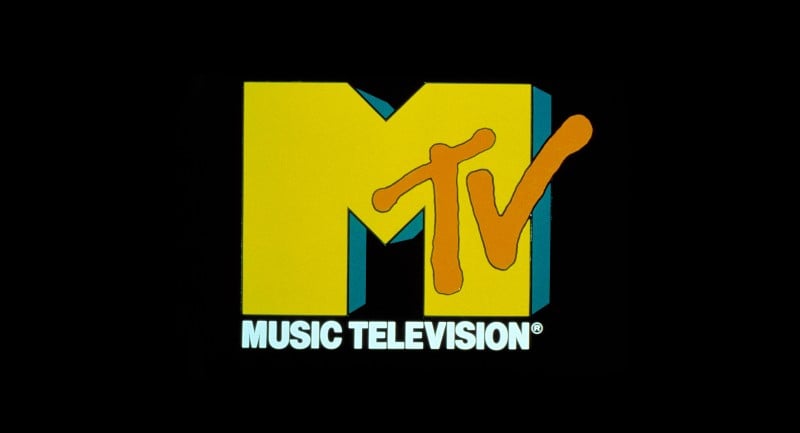
At the end of October, Paramount will shut down the linear MTV music channels in Australia. This includes MTV 80s, MTV 90s, MTV 00s, MTV Club, and MTV Hits.
The channels will remain on IPTV subscription streaming platform Fetch TV until 31 October.
The decision to shutter the channels follows the decision by Paramount not to renew its deal with Foxtel in June this year. Foxtel replaced the MTV music channels with a set of music channels curated locally in Australia by the Brisbane-based Nightlife Music.
A Paramount Australia spokesperson told Mediaweek that the MTV brand will continue in Australia, while indicating that the linear music channels would not shift over to streaming platform 10 (formerly known as 10Play). The spokesman said: “MTV music channels are not currently available on 10 streaming. MTV music and entertainment programming can be found on the brand’s global YouTube channel and on Paramount+ in Australia.”
In Australia, the MTV music channels were managed by Paramount Networks UK & Australia. It oversaw Comedy Central, which was exclusive to Fetch TV and also shuttered earlier this year.
This appears to be part of a global cost-saving strategy with the BBC reporting overnight that the MTV linear channels will close in the UK, Poland, France, and Brazil. The BBC linked the closures to efforts to cut costs at the company by as much as AU$769m (£376m) across its global business.
In the UK, the channels will close on New Years Eve.
The MTV brand launched in Australia in 1987, airing for six years as a compilation music video show hosted by Richard Wilkins on Nine. MTV was later reintroduced in Australia as a linear music video channel on Optus Television, with the channel later added to Austar and Foxtel.
MTV has been a fixture on Fetch TV since it launched in 2010, with MTV channels MTV Music Television, MTV Classic, and MTV Hits part of its initial lineup.
Fetch TV streams music video FAST channels including Now 70s, Now 80s, and Now 00s. The Vevo music app, which provided on-demand music and similarly-themed linear music video channels, was discontinued on the platform early this year.
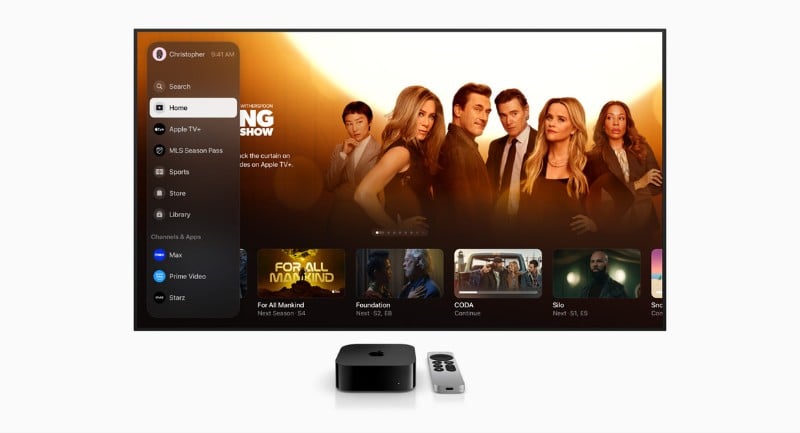
Hidden deep in a media release for the US streaming release of the Brad Pitt movie F1 was an announcement by Apple that it is rebranding the Apple TV+ streaming service.
Very few details were revealed by Apple, with the company revealing in a paragraph at the end of the media release that Apple TV+ going forward will be branded as ‘Apple TV.’
As per Apple: “Apple TV+ is now simply Apple TV, with a vibrant new identity. Ahead of its global streaming debut on Apple TV, the film continues to be available for purchase on participating digital platforms, including the Apple TV app, Amazon Prime Video, Fandango at Home and more.”
The Apple TV+ brand was created to avoid confusion with the Apple TV hardware product that the company also produce. The Apple TV is used to add connectivity to television sets, debuting in a pre-smart TV 2007. The company continues to release updates to Apple TV hardware, with seven updates to the hardware released since 2007. While a new hardware update is yet to be announced by Apple, it is believed by Apple speculators that an update is set to be announced before the end of the year.
The Apple TV hardware has never been a major product for Apple and the company doesn’t break out sale volumes for the product, but it is believed that the Apple TV product has sold over 50 million units since launch.
With the rebranding of the TV streaming service and rumours that the new Apple TV may have additional functionality like a camera built into it, it raises questions as to whether the Apple TV hardware will also be rebranded when the next iteration is released.
The F1 movie, the actual focus of the media release, will have its global streaming debut on Apple TV on Friday 12 December.
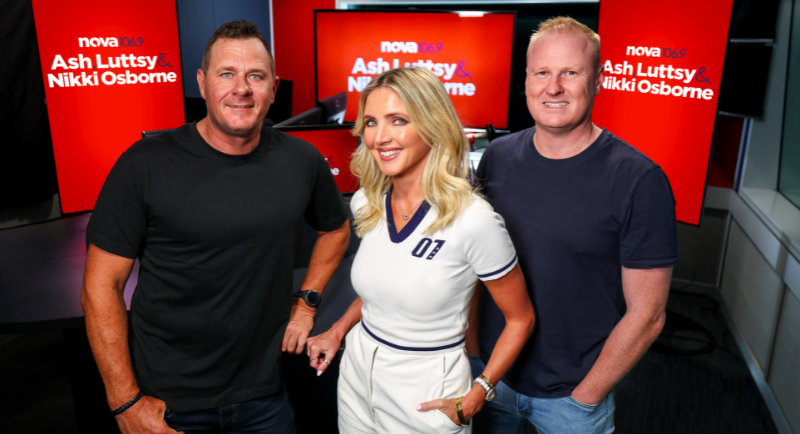
Brisbane Radio Ratings
GfK Survey 6 2025
Survey Period: Sun 20 July to Sat 27 Sept 2025.
Biggest Movers:
UP: 4BH 1116 +1.4
DOWN: 104.5 Triple M -0.9
In Brisbane, 4BH rose from 8.6 to 10.0, while B105 slipped slightly from 11.8 to 11.3. Nova 106.9 increased from 10.6 to 11.2, as Triple M fell from 12.9 to 12.0. KIIS 97.3 edged down from 8.5 to 8.3, and ABC Brisbane remained steady on 7.0.
Nova 106.9 continued to lead the pack, rising slightly from 13.1 to 13.4, while B105 held firm on 12.7. Triple M dipped from 13.8 to 12.6, and KIIS 97.3 lifted from 9.3 to 10.0.
4BH also edged up from 8.7 to 9.6, and ABC Brisbane saw one of the biggest gains this survey, climbing from 8.8 to 10.1.
104.5 Triple M 12% (12.9%)
Cume: 577,000 (-11,000)
Breakfast: 12.6% (13.8%)
B 105 11.3% (11.8%)
Cume: 605,000 (-49,000)
Breakfast: 12.7% (12.7%)
Nova 106.9 11.2% (10.6%)
Cume: 607,000 (-28,000)
Breakfast: 13.4% (13.1%)
4BH 1116 10% (8.6%)
Cume: 236,000 (-19,000)
Breakfast: 9.6% (8.7%)
KIIS 973 8.3% (8.5%)
Cume: 493,000 (-10,000)
Breakfast: 10% (9.3%)
ABC Brisbane 7% (7%)
Cume: 269,000 (+9,000)
Breakfast: 10.1% (8.8%)
Triple J 5.5% (5.2%)
Cume: 371,000 (+35,000)
Breakfast: 4.5% (4.9%)
4BC 882 5.3% (4.8%)
Cume: 118,000 (-16,000)
Breakfast: 3.6% (4.1%)
ABC Classic 2.5% (2.5%)
Cume: 97,000 (+9,000)
Breakfast: 1.6% (1.7%)
ABC NewsRadio 1.9% (1.7%)
Cume: 121,000 (-1,000)
Breakfast: 2% (2%)
ABC Radio National 1.5% (1.6%)
Cume: 66,000 (+8,000)
Breakfast: 2% (2%)
Senq 693 0.4% (0.6%)
Cume: 53,000 (+2,000)
Breakfast: 0.7% (1.2%)
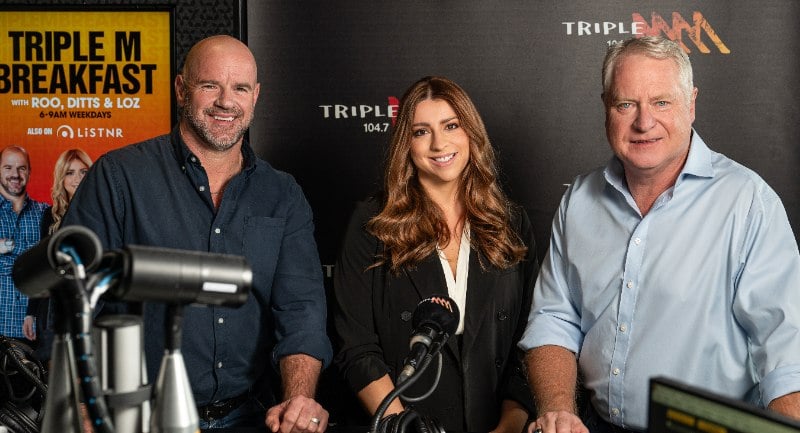
Adelaide Radio Ratings
GfK Survey 6 2025
Survey Period: Sun 20 July to Sat 27 Sept 2025.
Biggest Movers:
UP: SAFM +1.1
DOWN: Mix 102.3 -0.6
In Adelaide, Triple M held the top spot in breakfast, rising slightly from 14.0 to 14.3, while Mix 102.3 dipped from 13.2 to 12.6. Nova 91.9 also inched up from 11.2 to 11.4, and SAFM recorded a strong gain, climbing from 7.9 to 9.0. FIVEaa lifted modestly from 8.9 to 9.1, while Cruise 1323 eased from 7.2 to 6.7, and ABC Adelaide was steady, moving from 6.9 to 7.0.
Triple M surged ahead, leaping from 4.8 to 14.6 to claim a commanding lead this survey.
FIVEaa followed with a slight dip from 13.1 to 12.3, while Mix 102.3 also eased from 11.4 to 10.4. Nova 91.9 edged up from 10.9 to 11.4, and SAFM posted a strong lift from 7.2 to 9.2.
ABC Adelaide slipped marginally from 10.2 to 9.9, and Cruise 1323 softened from 6.3 to 6.0.
Triple M Adelaide 14.3% (14%)
Cume: 301,000 (-13,000)
Breakfast: 14.6% (14.8%)
Mix 102.3 12.6% (13.2%)
Cume: 363,000 (+25,000)
Breakfast: 10.4% (11.4%)
Nova 91.9 11.4% (11.2%)
Cume: 368,000 (-2,000)
Breakfast: 11.4% (10.9%)
FIVEaa 9.1% (8.9%)
Cume: 136,000 (-5,000)
Breakfast: 12.3% (13.1%)
SAFM 9% (7.9%)
Cume: 276,000 (+22,000)
Breakfast: 9.2% (7.2%)
ABC Adelaide 7% (6.9%)
Cume: 143,000 (+4,000)
Breakfast: 9.9% (10.2%)
Cruise 1323 6.7% (7.2%)
Cume: 189,000 (+14,000)
Breakfast: 6% (6.3%)
Triple J 3.9% (4.5%)
Cume: 140,000 (-7,000)
Breakfast: 4.2% (4.6%)
ABC Classic 2% (2.2%)
Cume: 61,000 (-3,000)
Breakfast: 2.3% (1.9%)
ABC NewsRadio 1.7% (1.9%)
Cume: 72,000 (+8,000)
Breakfast: 3.2% (3.2%)

Perth Radio Ratings
GfK Survey 6 2025
Survey Period: Sun 20 July to Sat 27 Sept 2025.
Biggest Movers:
UP: Nova 93.7 +2.3
DOWN: 92.9 Triple M -1.8
Nova 93.7 widened its lead, climbing from 13.7 to 16.0 to remain the city’s top station. Mix 94.5 lifted from 11.2 to 12.9, while 96FM eased from 13.1 to 12.4.
Triple M 92.9 dropped from 10.0 to 8.2, and ABC Perth slipped slightly from 6.9 to 6.4. On the AM band, 6PR fell from 5.5 to 4.8, and 6iX also declined from 5.5 to 4.9.
Nova 93.7 surged ahead, jumping from 16.4 to 19.6 to cement its dominance in the market.
Mix 94.5 also delivered a strong result, lifting from 10.7 to 12.5, while 96FM held steady, easing slightly from 10.8 to 10.6.
Triple M 92.9 fell from 12.3 to 9.2, and 6PR dipped from 7.8 to 7.4.
ABC Perth remained unchanged on 8.4, while 6iX softened from 4.3 to 3.8.
Nova 93.7 16% (13.7%)
Cume: 640,000 (-36,000)
Breakfast: 19.6% (16.4%)
Mix 94.5 12.9% (11.2%)
Cume: 551,000 (+1,000)
Breakfast: 12.5% (10.7%)
96Fm 12.4% (13.1%)
Cume: 446,000 (-3,000)
Breakfast: 10.6% (10.8%)
92.9 Triple M 8.2% (10%)
Cume: 415,000 (-33,000)
Breakfast: 9.2% (12.3%)
ABC Perth 6.4% (6.9%)
Cume: 211,000 (-9,000)
Breakfast: 8.4% (8.4%)
Triple J 5.2% (5.8%)
Cume: 289,000 (-22,000)
Breakfast: 5.2% (5.6%)
6iX 4.9% (5.5%)
Cume: 133,000 (-15,000)
Breakfast: 3.8% (4.3%)
6PR 4.8% (5.5%)
Cume: 167,000 (+14,000)
Breakfast: 7.4% (7.8%)
ABC Classic 3% (2.4%)
Cume: 125,000 (+25,000)
Breakfast: 3.2% (2.4%)
ABC NewsRadio 2.8% (2%)
Cume: 133,000 (+32,000)
Breakfast: 3.2% (3%)
ABC Radio National 1.1% (1.1%)
Cume: 58,000 (+2,000)
Breakfast: 1.1% (1.1%)
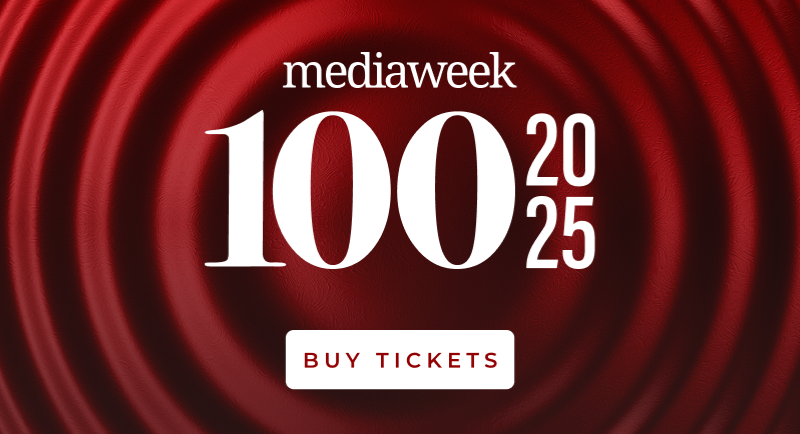
Mediaweek is delighted to announce that Belinda Russell will host this year’s Mediaweek 100 – the annual celebration of the most influential figures shaping Australia’s media industry.
A familiar face to TV audiences across the country, Russell is one of Australian television’s most trusted and dynamic presenters.
Known for her energy, warmth and sharp interviewing style, she has built a career across news, lifestyle and entertainment, connecting with viewers (who also love her regular dance videos).
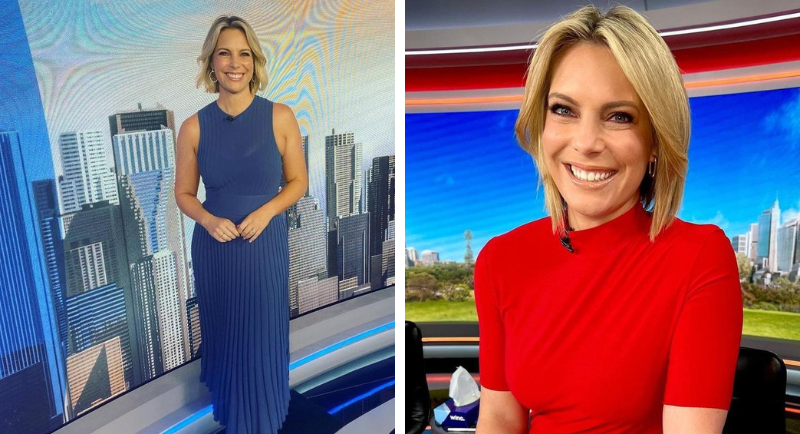
She is now a weather presenter for Sydney’s flagship 6pm news bulletin. She also regularly presents Nine News Now and occasionally joins Weekend Today.
This is the second time Russell has hosted the Mediaweek 100, now in its fourth year. This year, the event takes plan on Friday, 24 October 2025 at Crown Sydney.
More than just a roll-call of names, this year’s list will capture the diverse mix of executives, innovators, and disruptors whose decisions and influence have defined the industry over the past 12 months.
You can buy individual tickets, a half table or a full table for the three course lunch at the impressive Pearl Ballroom at the Crown Sydney.
This year, the Mediaweek 100 has a new format, as the 100 leaders are celebrated across five themed categories.
These are the Power 20, Growth 20, Innovation 20, Influence 20, and Impact 20, are each ranked from 20 to 1.
The Media Agency 50 has also evolved. Shaped with input from an independent advisory board, it celebrates the leaders and teams in Australia’s media agencies.
With refreshed criteria focused on innovation, impact and culture – rather than just scale – this list highlights those truly setting benchmarks for excellence.
For event enquiries, including questions around tickets, contact Head of Editorial Operations, Sarah Chapman.

This weekend, the top 20 films at the Australian box office grossed $8,091,025, a 35% drop from last weekend’s $12,499,900. The per-screen average was $2,238, down from $3,361 last week. With the final weekend of school holidays, box office took a bit of a hit. This weekend’s Tron: Ares didn’t quite perform as well as last week’s Taylor Swift’s one-week limited release promotional movie (driving $2,897,864 across the weekend), but it did an admirable enough job.
Making its debut at the top of the charts is the third instalment in the Tron franchise, which began in 1982 with Jeff Bridges in the lead. The new Tron movie inverts the premise of the films – instead of our hero going into a video game, characters from the game step out into real life.
Disney opened this film in multiple international markets with a campaign that focused on the real-world experience of the third film.
For the opening weekend pulled it made $2,226,413 across a massive 529 screen count. Since release, the film has netted $12,796,732.
The movie has a supporting role by Jeff Bridges, the original star of the Tron films, but is led this time by Jared Leto. Other actors in the film include s an ensemble cast including Greta Lee, Evan Peters, Jodie Turner-Smith, Hasan Minhaj, Arturo Castro, and Gillian Anderson.
Synopsis:Mankind encounters AI beings for the first time when a highly sophisticated programme, Ares, leaves the digital world for a dangerous mission in the real world.
In week four of release, The Bad Guys 2 has retained its hold on Australian audiences with second place. Across the weekend it made $1,325,155, bringing total box office since release to $14,137,552. That’s a 45% drop on week three, with a reduced screen count of 333.
The Bad Guys 2 was the film of the school holidays, with strong box office across the past three weeks. It didn’t have Taylor Swift to compete with this week, but Tron: Ares surely ate into some of the audience of older kids who might have instead gone to see the animated heist comedy.
Synopsis: Reformed criminals Mr. Wolf, Mr. Snake, Mr. Piranha, Mr. Shark and Ms. Tarantula are trying very hard to be good. However, they soon find themselves hijacked into a high-stakes heist that’s masterminded by a new team of delinquents they never saw coming… the Bad Girls.
With this third weekend of release, One Battle After Another continues to drive an audience for adult audiences. The Bad Guys 2 has retained its hold on Australian audiences with second place. Across the weekend it made $1,013,228 on 306 screens. Since release, the film has made $6,148,090.
Next week’s release of buzzy indie movie After The Hunt may eat into some of the upscale adult audiences attracted to One Battle After Another, but positive word of mouth continues to drive audiences.
Synopsis: Bob is a washed-up revolutionary who lives in a state of stoned paranoia, surviving off-grid with his spirited and self-reliant daughter, Willa. When his evil nemesis resurfaces and Willa goes missing, the former radical scrambles to find her as both father and daughter battle the consequences of their pasts.
Australian family film Kangaroo continues to hold in the top five and saw a lift to the fourth spot for this final school holiday weekend in its run.
In this fourth weekend of release, Kangaroo saw $547,781 across 295 screens. Since release it has made $4,614,595.
Synopsis: A pro surfer teams up with an 11-year-old Indigenous girl to rescue and rehabilitate orphaned kangaroos in a remote community.
Based on the Netflix kids show, Gabby continued to drive an audience of enthusiastic girls rubbing their cat ear headwear and dreaming of magical dollhouses. In week three of release, the movie dropped to fifth place. The film earned $526,449 across the weekend on 272 screens. Since release, the movie made $4,433,700.
Synopsis: When Gabby’s dollhouse, her most prized possession, ends up in the hands of an eccentric cat lady named Vera, she sets off on an adventure through the real world to get the Gabby Cats back together before it’s too late.
Rounding out the top 10 this week:
6. The Travellers – $491,645
7. Kantara A Legend: Chapter 1 – $473,391 (total gross: $1,470,238)
8. The Conjuring: Last Rites – $322,810 (total gross: $14,753,484)
9. Downton Abbey: The Grand Finale – $243,232 (total gross: $6,236,896)
10. Demon Slayer: Kimetsu no Yaiba Infinity Castle – $210,426 (total gross: $10,055,249)
As The Australian’s Paul Garvey reports, the move comes less than two months after being awarded over $1 million in damages and legal costs.
Marks copped a frosty reception from across the board – with Senators Jacinta Nampijinpa Price and Sarah Henderson – both grilling him over everything from Aunty’s failure to report certain stories, and why ABC news chief Justin Stevens didn’t turn up for questioning.
Well, now we’ve learned a little more about what occurred in the lead up.
According to The Herald Sun’s Blair Jackson, the fiery exchange started when Lyons kept hammering the US President about his family’s growing cryptocurrency wealth.
Very few details were revealed by Apple, with the company revealing in a paragraph at the end of the media release that Apple TV+ going forward will be branded as ‘Apple TV.’
The Australian Financial Review’s Paul Smith writes it’s a big score for Meta in Silicon Valley’s escalating AI talent war.
A major beer judging event has landed in hot water after quietly introducing an AI tool mid-competition.
According to Joseph Cox from 404 Media, the move left human judges stunned to learn their tasting notes were being used to train it.
Well then, I guess we now know where we draw the line when it comes to AI.
Public policy lead Rachel Lord said removing YouTube accounts would strip away key parental controls.
Meanwhile, as The Guardian’s Josh Taylor reports, the company’s Stefanee Lovett wouldn’t confirm if Google was lobbying the Trump administration ahead of Anthony Albanese’s US visit.
As Joseph Olbrycht-Palmer Wells, writes on news.com.au said the meetings, joined by eSafety Commissioner Julie Inman Grant, would “re-enforce” that platforms must work proactively with government to ensure compliance.
As AP’s Andrew Dalton reports, the pair came full circle, as Obama’s 2015 appearance in Maron’s garage helped catapult podcasts into the cultural mainstream.
Speaking to the BBC’s Colin Paterson, Kang said there’s “nothing official” yet but admitted she and co-director Chris Appelhans see plenty of potential to expand the world.